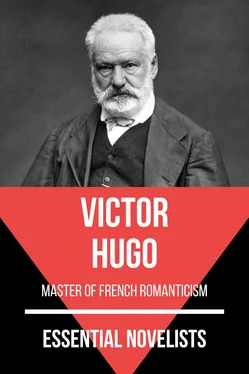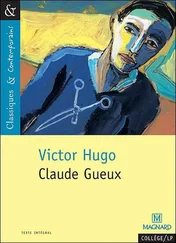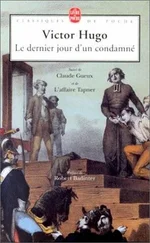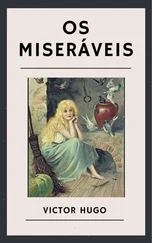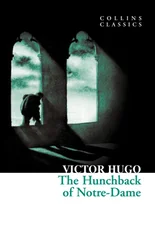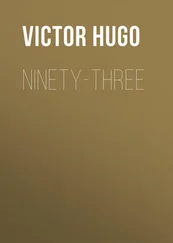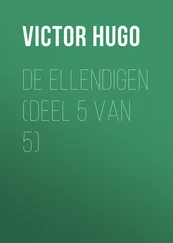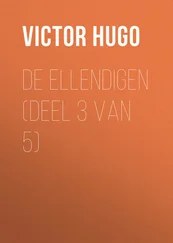Hougomont injured, La Haie-Sainte taken, there now existed but one rallying-point, the centre. That point still held firm. Wellington reinforced it. He summoned thither Hill, who was at Merle-Braine; he summoned Chassé, who was at Braine-l’Alleud.
The centre of the English army, rather concave, very dense, and very compact, was strongly posted. It occupied the plateau of Mont-Saint-Jean, having behind it the village, and in front of it the slope, which was tolerably steep then. It rested on that stout stone dwelling which at that time belonged to the domain of Nivelles, and which marks the intersection of the roads—a pile of the sixteenth century, and so robust that the cannon-balls rebounded from it without injuring it. All about the plateau the English had cut the hedges here and there, made embrasures in the hawthorn-trees, thrust the throat of a cannon between two branches, embattled the shrubs. There artillery was ambushed in the brushwood. This punic labor, incontestably authorized by war, which permits traps, was so well done, that Haxo, who had been despatched by the Emperor at nine o’clock in the morning to reconnoitre the enemy’s batteries, had discovered nothing of it, and had returned and reported to Napoleon that there were no obstacles except the two barricades which barred the road to Nivelles and to Genappe. It was at the season when the grain is tall; on the edge of the plateau a battalion of Kempt’s brigade, the 95th, armed with carabines, was concealed in the tall wheat.
Thus assured and buttressed, the centre of the Anglo-Dutch army was well posted. The peril of this position lay in the forest of Soignes, then adjoining the field of battle, and intersected by the ponds of Groenendael and Boitsfort. An army could not retreat thither without dissolving; the regiments would have broken up immediately there. The artillery would have been lost among the morasses. The retreat, according to many a man versed in the art,—though it is disputed by others,—would have been a disorganized flight.
To this centre, Wellington added one of Chassé‘s brigades taken from the right wing, and one of Wincke’s brigades taken from the left wing, plus Clinton’s division. To his English, to the regiments of Halkett, to the brigades of Mitchell, to the guards of Maitland, he gave as reinforcements and aids, the infantry of Brunswick, Nassau’s contingent, Kielmansegg’s Hanoverians, and Ompteda’s Germans. This placed twenty-six battalions under his hand. The right wing, as Charras says, was thrown back on the centre. An enormous battery was masked by sacks of earth at the spot where there now stands what is called the “Museum of Waterloo.” Besides this, Wellington had, behind a rise in the ground, Somerset’s Dragoon Guards, fourteen hundred horse strong. It was the remaining half of the justly celebrated English cavalry. Ponsonby destroyed, Somerset remained.
The battery, which, if completed, would have been almost a redoubt, was ranged behind a very low garden wall, backed up with a coating of bags of sand and a large slope of earth. This work was not finished; there had been no time to make a palisade for it.
Wellington, uneasy but impassive, was on horseback, and there remained the whole day in the same attitude, a little in advance of the old mill of Mont-Saint-Jean, which is still in existence, beneath an elm, which an Englishman, an enthusiastic vandal, purchased later on for two hundred francs, cut down, and carried off. Wellington was coldly heroic. The bullets rained about him. His aide-de-camp, Gordon, fell at his side. Lord Hill, pointing to a shell which had burst, said to him: “My lord, what are your orders in case you are killed?” “To do like me,” replied Wellington. To Clinton he said laconically, “To hold this spot to the last man.” The day was evidently turning out ill. Wellington shouted to his old companions of Talavera, of Vittoria, of Salamanca: “Boys, can retreat be thought of? Think of old England!”
Towards four o’clock, the English line drew back. Suddenly nothing was visible on the crest of the plateau except the artillery and the sharpshooters; the rest had disappeared: the regiments, dislodged by the shells and the French bullets, retreated into the bottom, now intersected by the back road of the farm of Mont-Saint-Jean; a retrograde movement took place, the English front hid itself, Wellington drew back. “The beginning of retreat!” cried Napoleon.
Chapter VII
Napoleon In A Good Humor
––––––––

THE EMPEROR, THOUGH ill and discommoded on horseback by a local trouble, had never been in a better humor than on that day. His impenetrability had been smiling ever since the morning. On the 18th of June, that profound soul masked by marble beamed blindly. The man who had been gloomy at Austerlitz was gay at Waterloo. The greatest favorites of destiny make mistakes. Our joys are composed of shadow. The supreme smile is God’s alone.
Ridet Cæsar, Pompeius flebit, said the legionaries of the Fulminatrix Legion. Pompey was not destined to weep on that occasion, but it is certain that Cæsar laughed. While exploring on horseback at one o’clock on the preceding night, in storm and rain, in company with Bertrand, the communes in the neighborhood of Rossomme, satisfied at the sight of the long line of the English camp-fires illuminating the whole horizon from Frischemont to Braine-l’Alleud, it had seemed to him that fate, to whom he had assigned a day on the field of Waterloo, was exact to the appointment; he stopped his horse, and remained for some time motionless, gazing at the lightning and listening to the thunder; and this fatalist was heard to cast into the darkness this mysterious saying, “We are in accord.” Napoleon was mistaken. They were no longer in accord.
He took not a moment for sleep; every instant of that night was marked by a joy for him. He traversed the line of the principal outposts, halting here and there to talk to the sentinels. At half-past two, near the wood of Hougomont, he heard the tread of a column on the march; he thought at the moment that it was a retreat on the part of Wellington. He said: “It is the rear-guard of the English getting under way for the purpose of decamping. I will take prisoners the six thousand English who have just arrived at Ostend.” He conversed expansively; he regained the animation which he had shown at his landing on the first of March, when he pointed out to the Grand-Marshal the enthusiastic peasant of the Gulf Juan, and cried, “Well, Bertrand, here is a reinforcement already!” On the night of the 17th to the 18th of June he rallied Wellington. “That little Englishman needs a lesson,” said Napoleon. The rain redoubled in violence; the thunder rolled while the Emperor was speaking.
At half-past three o’clock in the morning, he lost one illusion; officers who had been despatched to reconnoitre announced to him that the enemy was not making any movement. Nothing was stirring; not a bivouac-fire had been extinguished; the English army was asleep. The silence on earth was profound; the only noise was in the heavens. At four o’clock, a peasant was brought in to him by the scouts; this peasant had served as guide to a brigade of English cavalry, probably Vivian’s brigade, which was on its way to take up a position in the village of Ohain, at the extreme left. At five o’clock, two Belgian deserters reported to him that they had just quitted their regiment, and that the English army was ready for battle. “So much the better!” exclaimed Napoleon. “I prefer to overthrow them rather than to drive them back.”
In the morning he dismounted in the mud on the slope which forms an angle with the Plancenoit road, had a kitchen table and a peasant’s chair brought to him from the farm of Rossomme, seated himself, with a truss of straw for a carpet, and spread out on the table the chart of the battle-field, saying to Soult as he did so, “A pretty checker-board.”
Читать дальше
